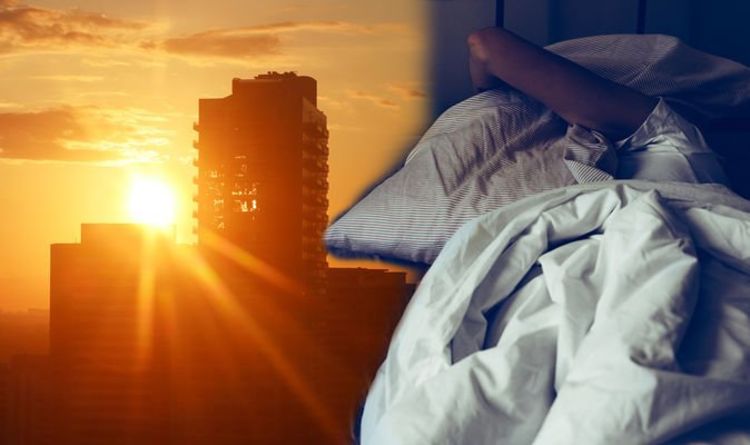How to sleep: Expert on longest day of the year and its impact on sleep – tips to help

With summer months finally here so brings the longer days. Experts warn this could majorly impact many people’s sleeping patterns as longer days means shorter a night’s sleep. With the longest day arriving imminently how can this impact your sleep routine – what tips can you implement to ensure your sleep routine is not altered?
Experts have identified that light pollution, from both natural and artificial sources, is a key factor behind poor sleep quality during the pandemic as longer daylight hours and increased blue light exposure were linked to an inconsistent sleep schedule and difficulty falling asleep.
Light was found to be the most disruptive factor when trying to sleep, as high levels of light pollution disrupt essential sleep-wake cycles.
According to the NHS, this can result in poor focus, impaired decision-making and an increased injury risk.
Allana Wass, certified sleep science coach, offered tips on how one can combat this occurrence emphasising the importance of having a structured routine.
She said: “Staying consistent with your sleep schedule is essential.
“It might be hard to go to bed and wake up at the same time, but only at first.
“Once your body adjusts to a specific schedule, you won’t even have to catch up on sleep during the weekends.
“Without this, your body will struggle to regulate its natural sleep and wake cycles, whereas following a routine means you’ll find it easier to fall asleep and wake up naturally.”
Sleep psychologist and sleep coach, Katherine Hall urged people to prioritise getting a good night’s rest in order to stay alert and productive during summer.
Katherine said: “Establish a routine is key when it comes to sleep. If you have been routinely waking up slightly later since working from home, you may find waking up slightly earlier more difficult and you may experience some ‘sleep inertia’ – the confused, disoriented and grogginess you feel upon waking.”
Alex Savy, certified sleep science coach, believes that light levels are the most impactful factor on sleep.
He said: “To improve one’s sleep quality, you need to control light exposure.
“This includes limiting your screen time and, ideally, avoiding taking devices to bed.”





